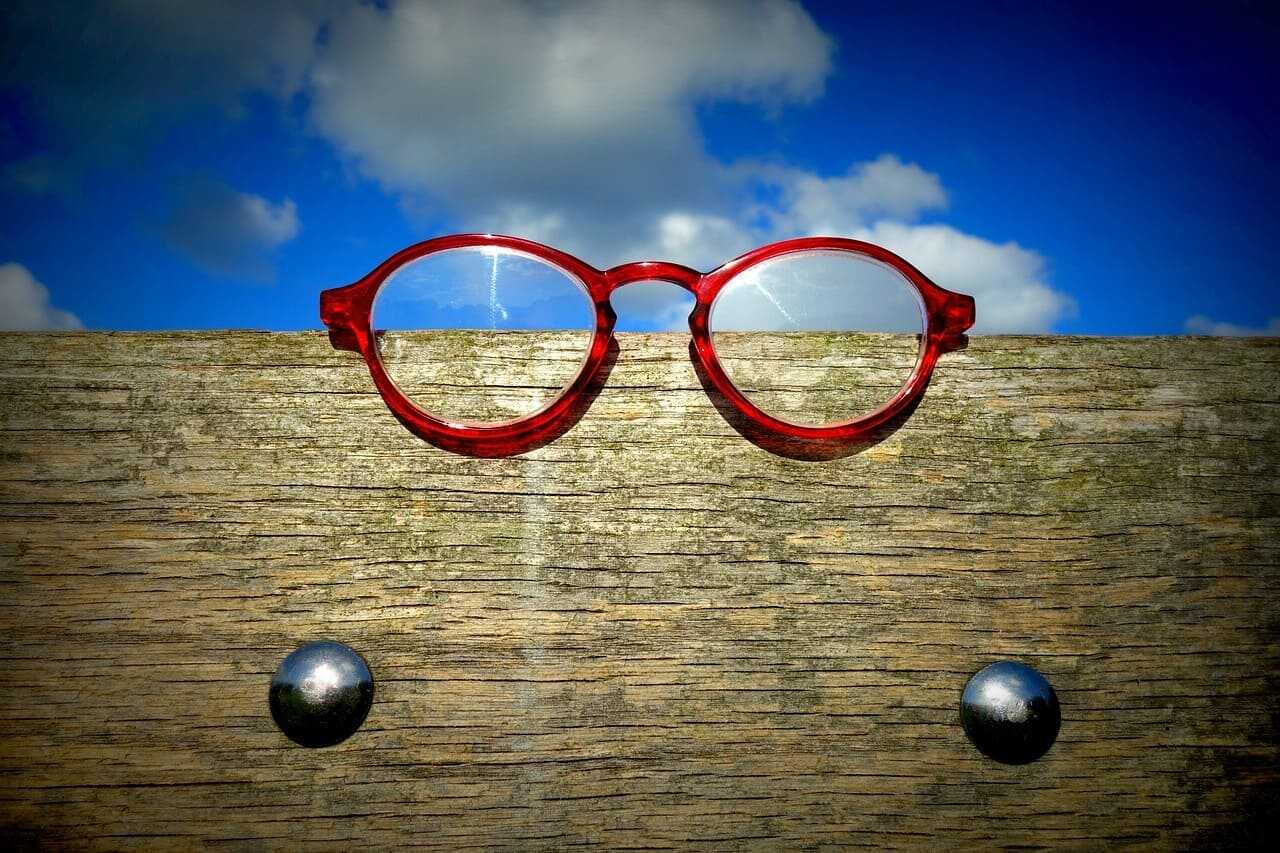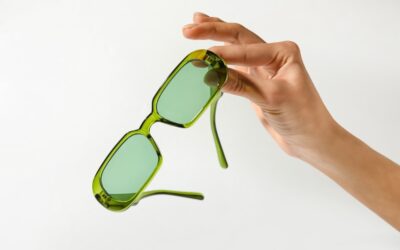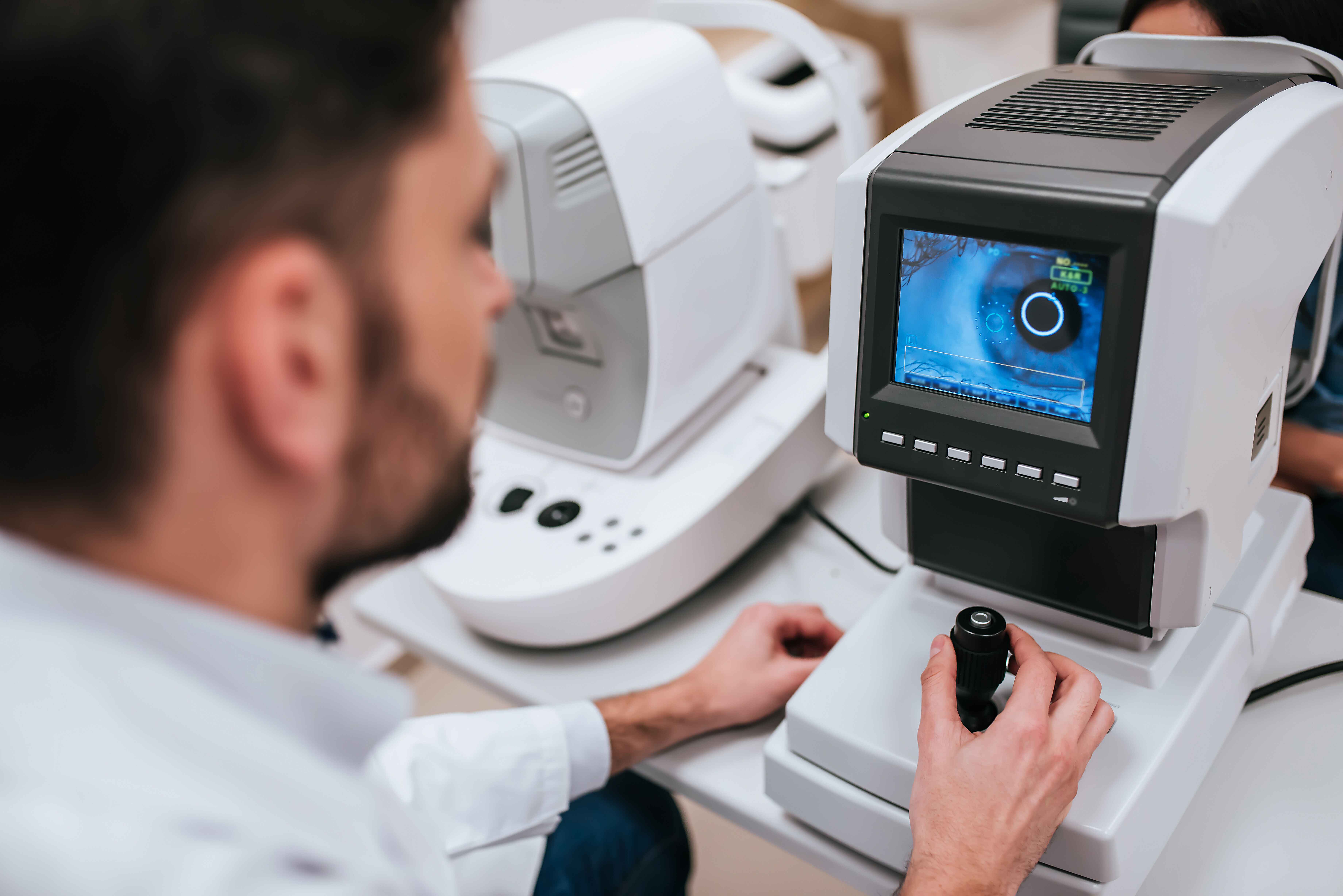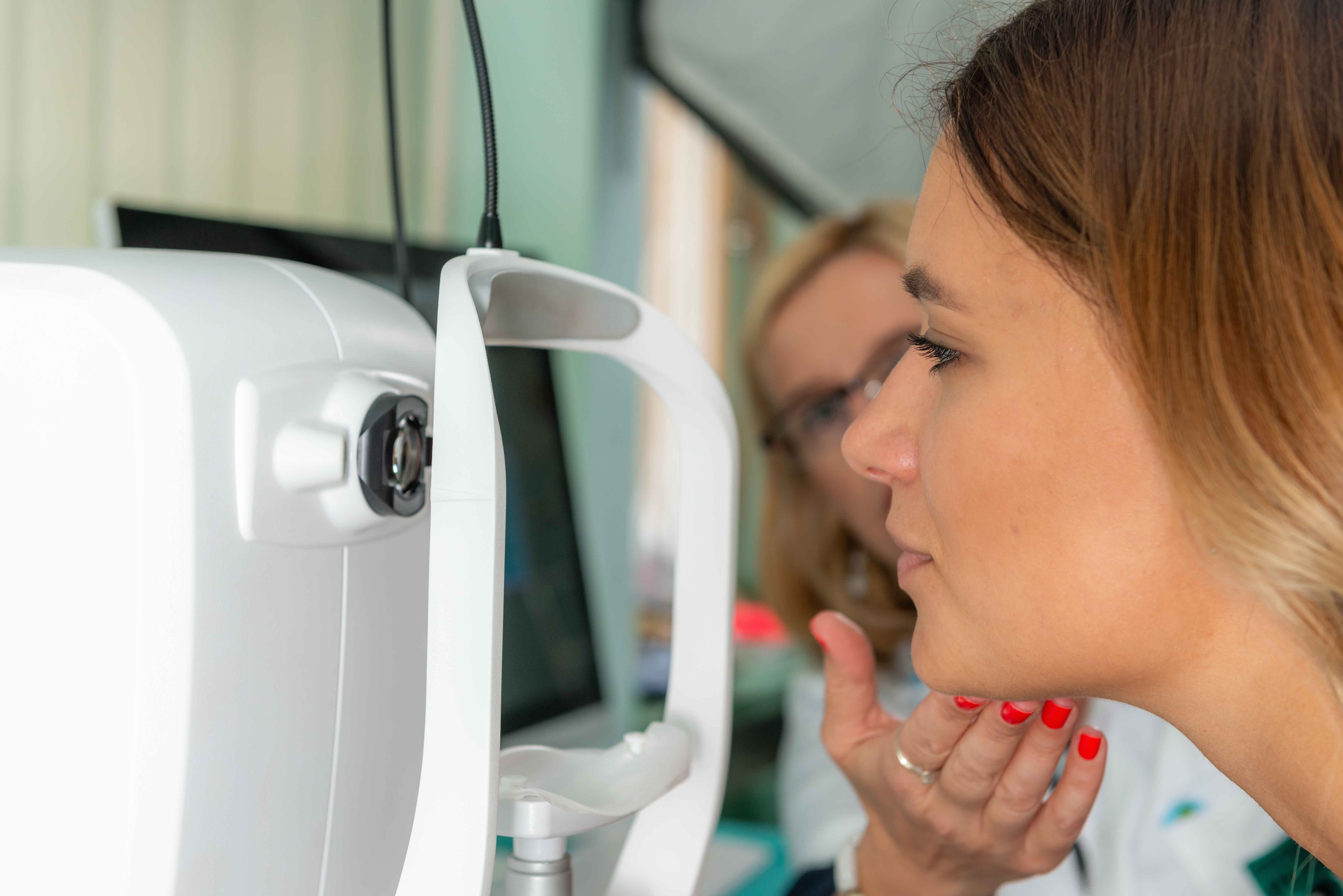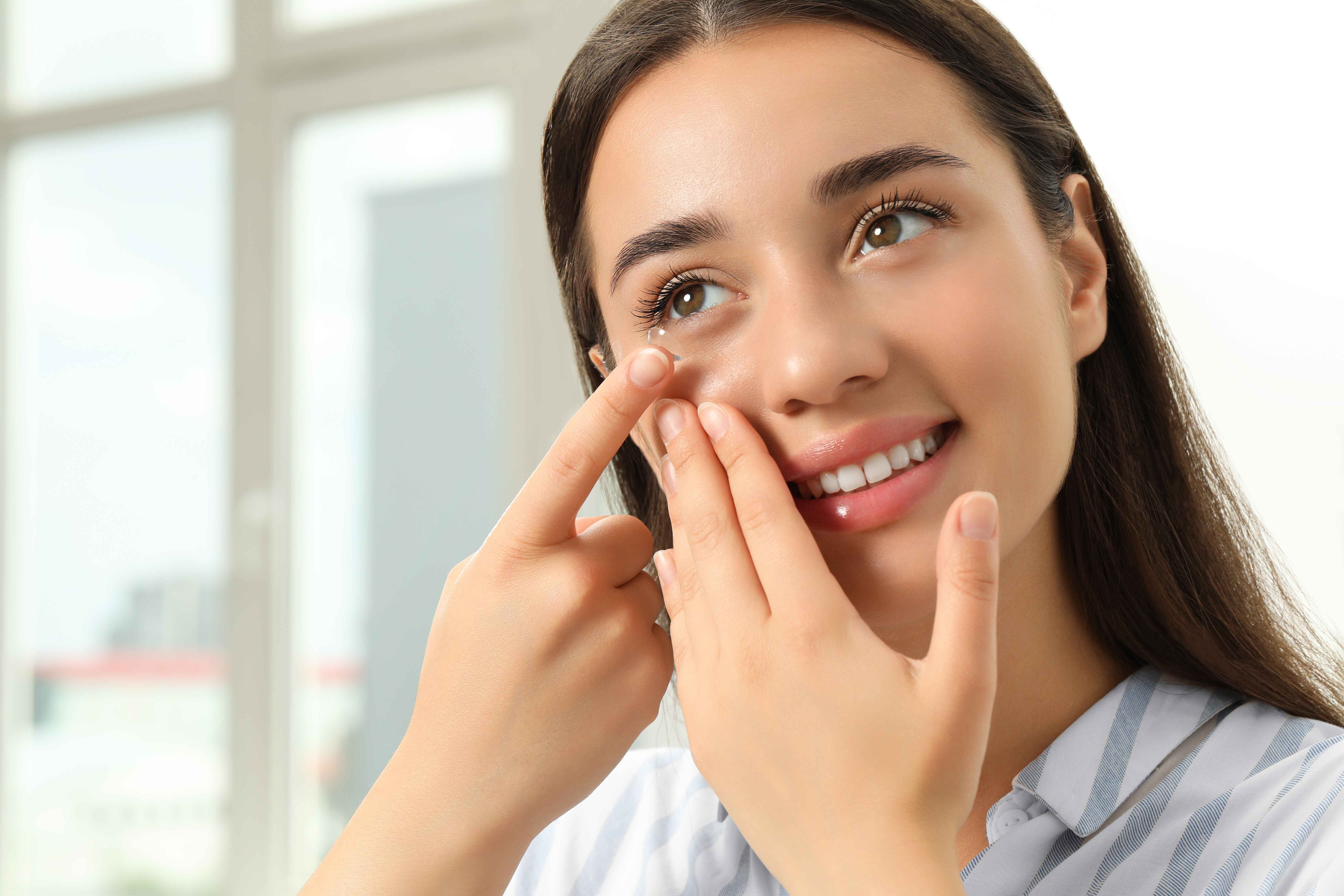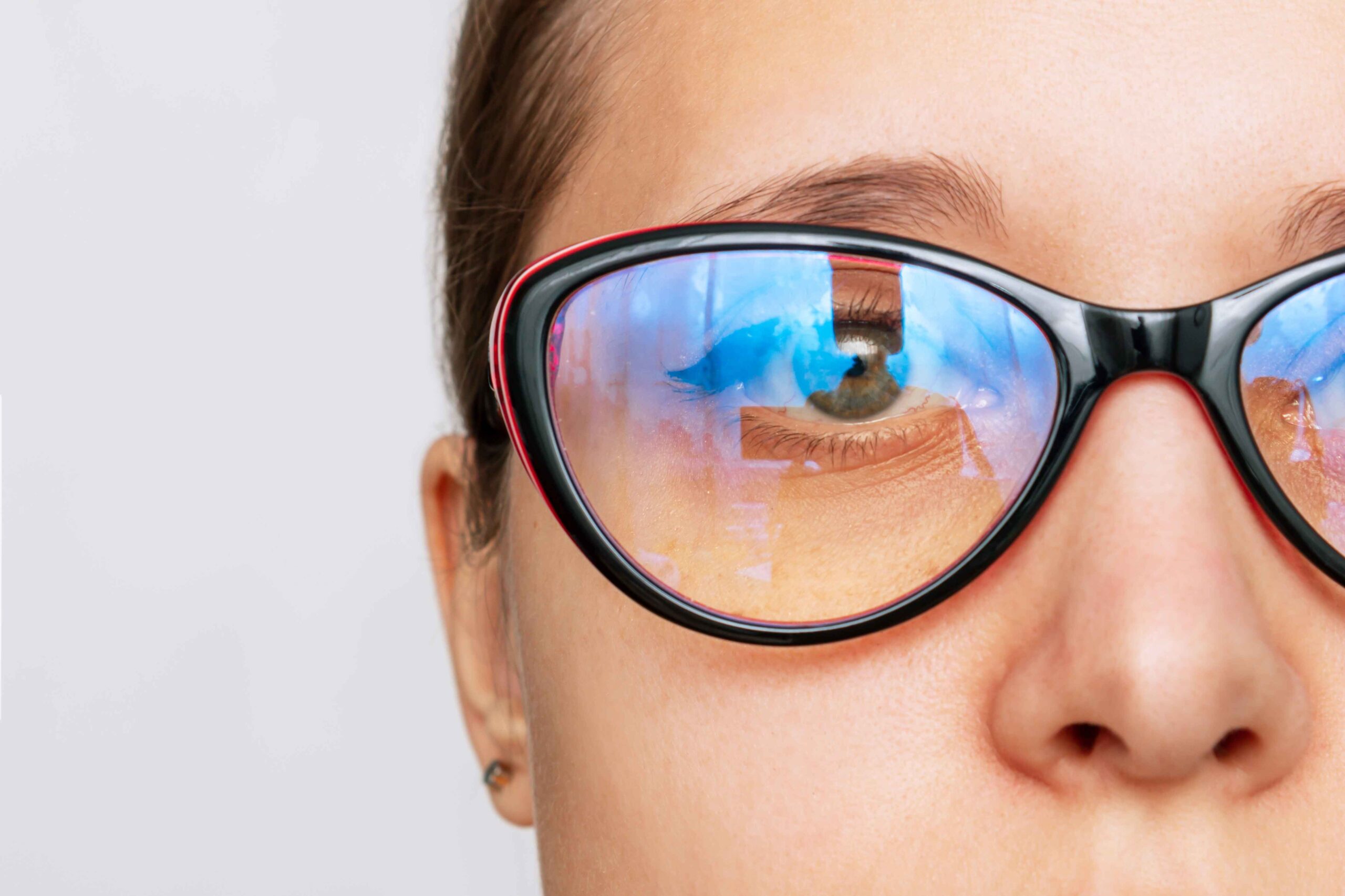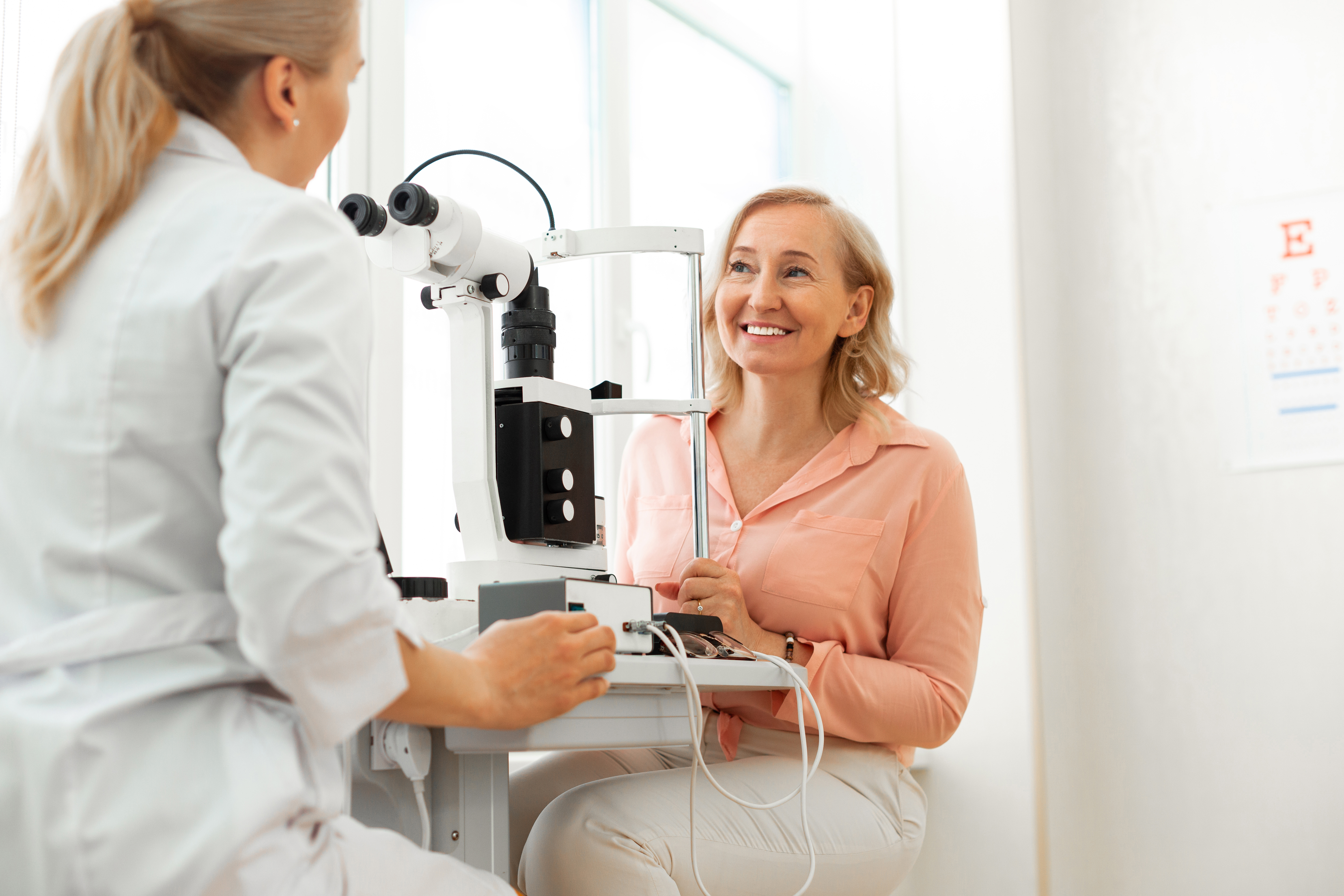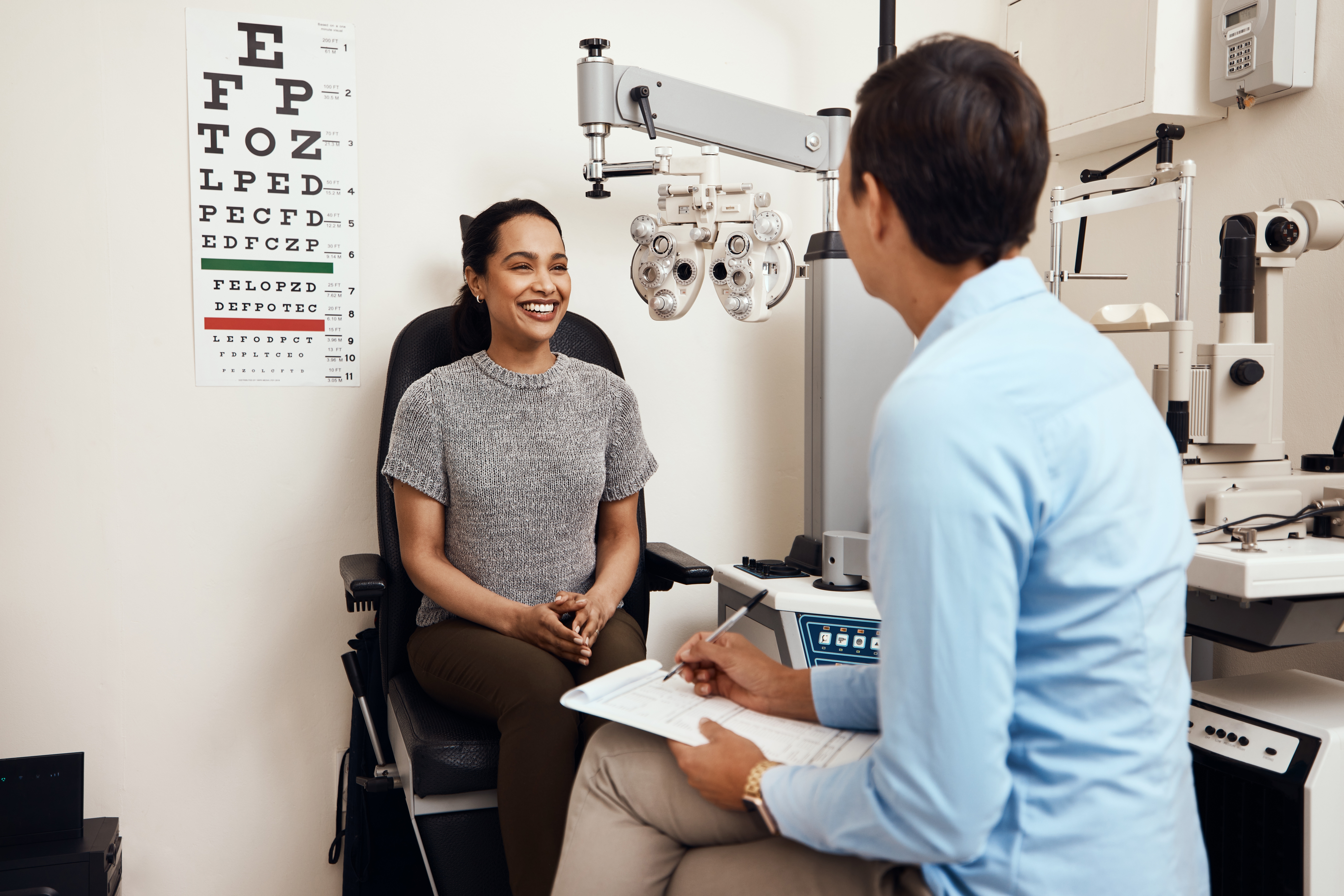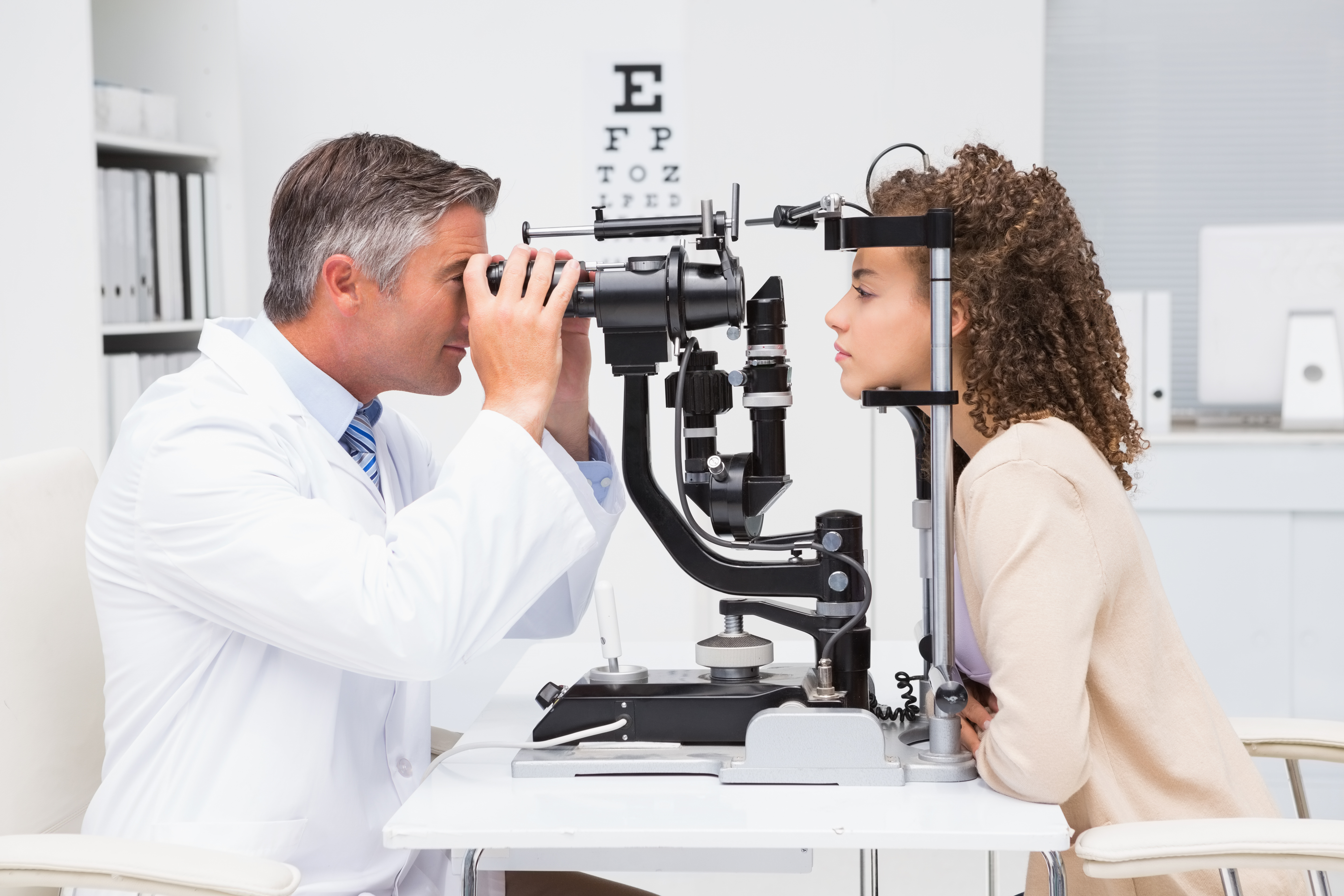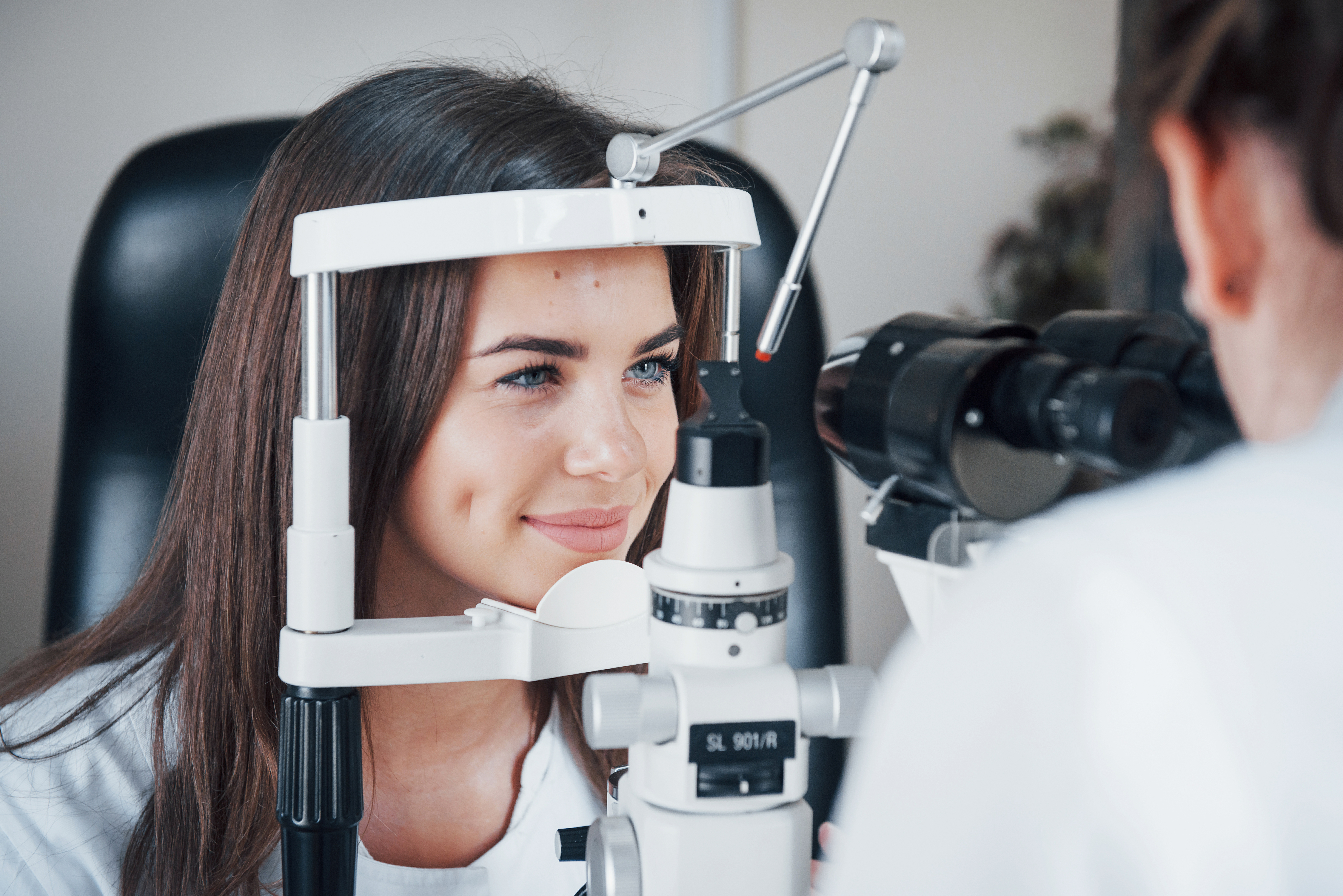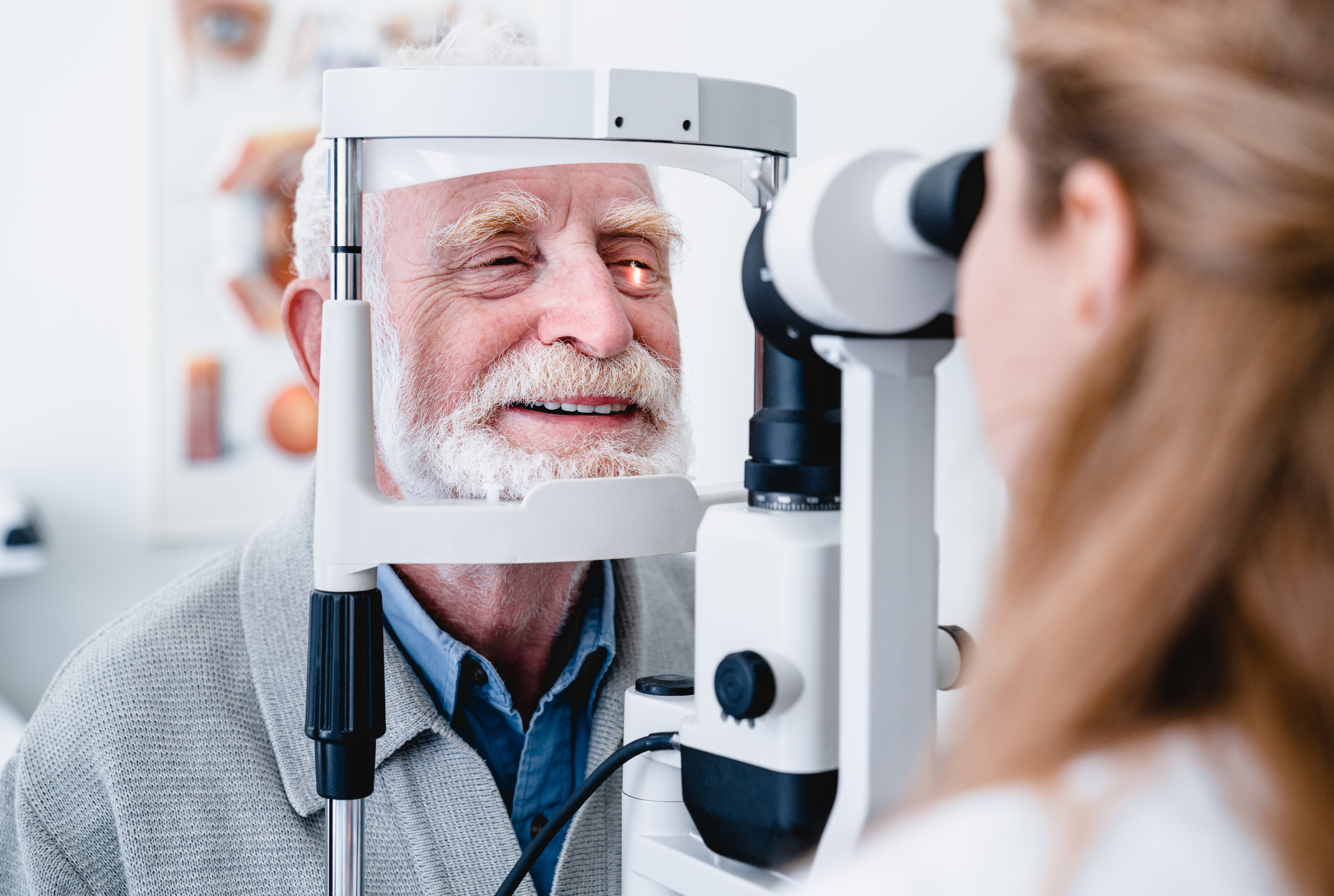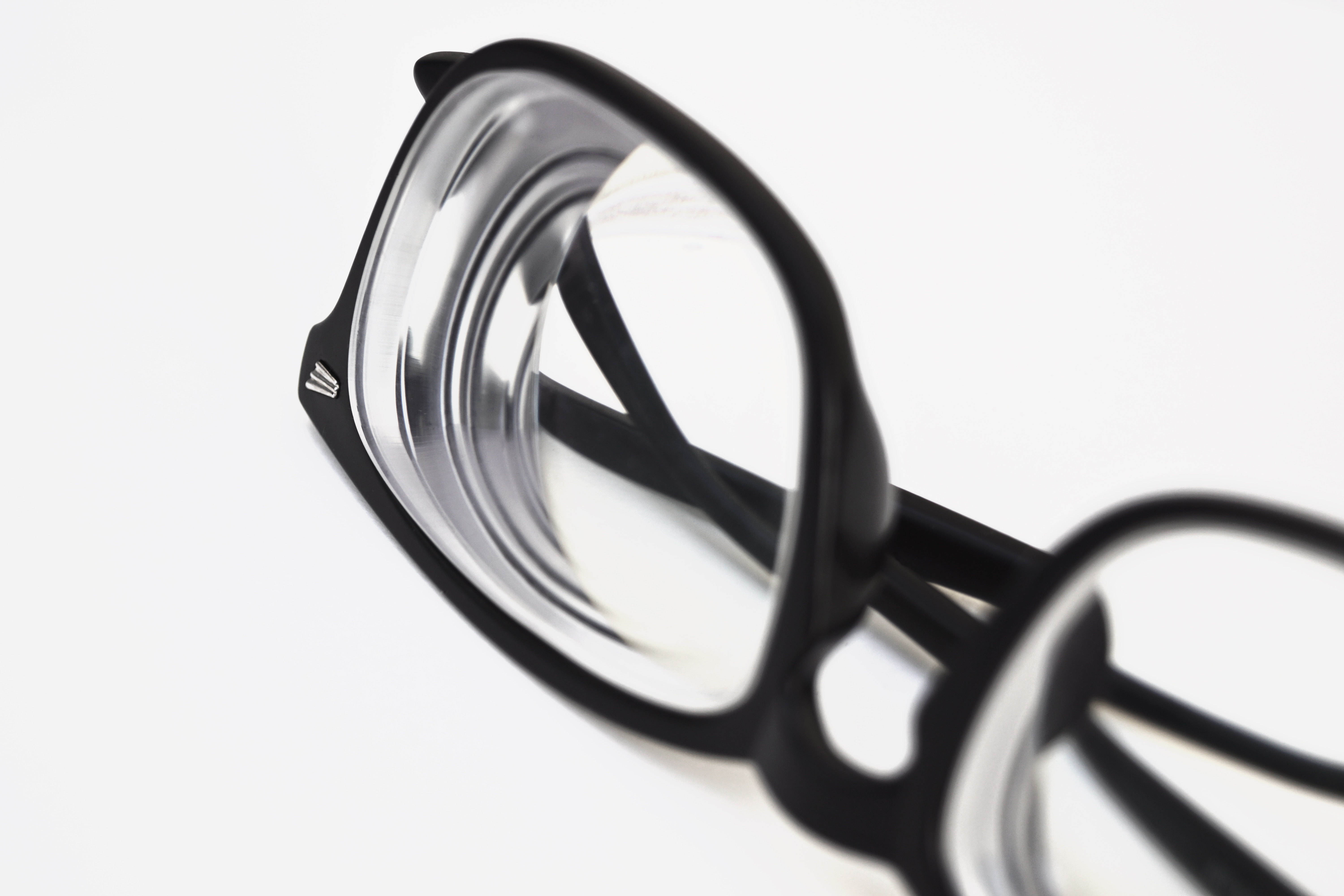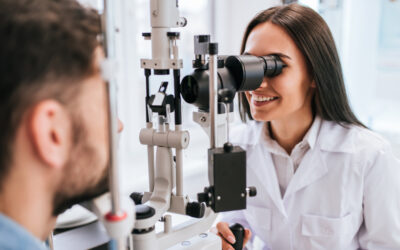Table of Contents
As we came out of our COVID-19-induced indoor winter, our eyes, shaded by more than a year indoors, cried out for sunglasses. But sunglasses aren’t just a fashion accessory anymore. Today, they’re a part of your eye care in Tulsa, Oklahoma, and beyond. So which shades do you choose to ensure your eyes get the best care possible? Here are a few things you should keep in mind when making your choice.
UVA/UVB protection for eye care in Tulsa
Perhaps the most essential thing sunglasses can do is protect your eyes from damage caused by exposure to UVA/UVB rays. Ultraviolet (UV) rays are electromagnetic rays produced by the sun. There are three varieties of UV rays, but only UVA and UVB threaten your eyes. Both can damage cells, but UVB rays are slightly stronger. The rays are strongest and have the most potential to injure your eyes:
- In spring or summer.
- From mid-morning to mid-afternoon, especially around noon.
- Near the equator.
- When reflected from other surfaces.
Sunglasses have come a long way since their prehistoric origins when Inuit peoples flattened walrus ivory to form glasses to block the sun’s reflected rays. Today, sunglasses that can prevent all or most UV rays from reaching your eyes are widely available. Their protection comes from chemicals added to the lenses, not from the intensity of the color. When selecting your shades, be sure to look for lenses that say “99-100% effective” or “UV absorption up to 400 nm,” which are essentially the same thing.
Protection against UVA/UVB rays is critical because the rays can contribute to the development of:
- Cataracts.
- Eye cancers.
- Growths on the eye, especially common among swimmers and surfers.
- Photokeratitis or snow blindness from reflected light, especially reflected off snow.
- Age-related macular degeneration.
- Pterygium.
Given our southern U.S. location, your routine for eye care in Tulsa should include good UVA/UVB sunglasses. Also, remember that your children’s eyes need UV protection as well, so children’s sunglasses shouldn’t be chosen based on how cute they are.
Size really matters — color, not so much
UV rays don’t just come straight at you; they hit your eyes from all directions. For this reason, it’s recommended to wear larger lenses that feature wraparounds or side pieces that help to protect your eyes. Despite a common misconception, color doesn’t matter all that much. But while darker lenses don’t offer more protection against UV rays, they can help reduce squinting and eye fatigue.
Some colors can, however, provide better visual contrast that makes you safer when driving or engaging in outdoor activities. For those who don’t wear prescription sunglasses, most lenses that darken in sunlight will also offer UVA/UVB protection.
Polarized lenses
Polarized lenses have a chemical coating that absorbs certain light rays to reduce glare. They won’t give you more UV protection, but can reduce eye strain by blocking reflected light. Remember, though, they do not permit you to look directly at the sun without damaging your eyes. You can test the lenses of glasses you are considering by rotating them while looking through them at reflected light. If the glasses have good polarized lenses, the glare will change when the lenses move.
Quality counts
As with all things, sunglasses are available in a range of qualities. Poor-quality sunglasses with a thin coat of tint don’t provide much protection for your eyes. Quality lens coatings, on the other hand, will include polarization and other chemical coatings that protect your eyes against UV rays, eye strain and glare fatigue.
Beyond coating quality, the material that sunglass lenses are made out of contribute to their overall quality. Due to the reduced cost and ease of coating, most non-prescription sunglasses are made with high-quality plastic lenses instead of glass. While this plastic is not as scratch-resistant as glass, it is lighter and more impact-resistant.
Some cheap sunglasses use inferior lens materials, so they could cause eye strain and fatigue. Thus, it’s important to choose high-quality ophthalmic plastics that can retain strong coatings that block at least 75-90% of light.
The most important step
No matter how good your sunglasses are, one step toward great eye care matters most. Don’t forget to wear them! Whenever you’re outside, be sure to wear good-quality sunglasses (or photosensitive lenses that will darken) to protect your eyes from potential sun damage. A professional who provides eye care in Tulsa can assist you with finding — or prescribing if needed — excellent protective sunglasses to keep your eyes healthy well into the future.
Sunglasses for eye care in Tulsa
In a sunny southern climate like ours, sunglasses can offer vital protection that preserves the long-term health of your eyes. If you’re not sure what you need, Tulsa eye care professionals can guide you. Visit Vision Care Direct for high-quality eye care that is doctor-owned and creates a personal relationship between patients and optometrists. We offer individual vision plans that help protect eye health in Oklahoma and beyond.
